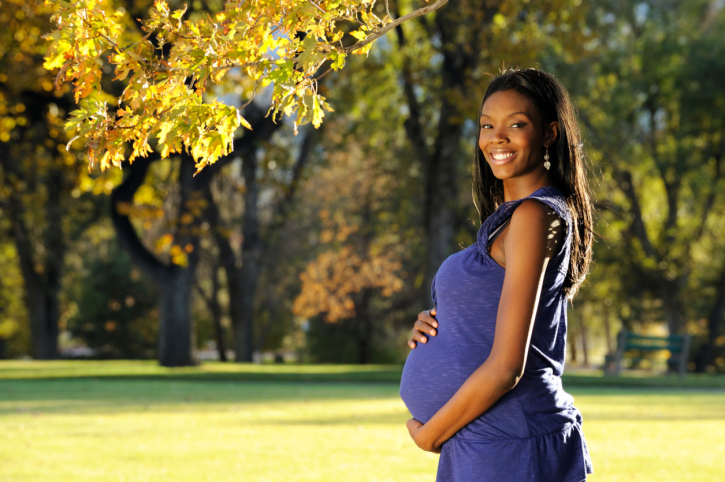 While there are many symptoms associated with conception, morning sickness, tender breasts and exhaustion, pregnancy glow is arguably one of the initial signs you’ve got a baby on board. So, what is pregnancy glow and it is a real thing?
While there are many symptoms associated with conception, morning sickness, tender breasts and exhaustion, pregnancy glow is arguably one of the initial signs you’ve got a baby on board. So, what is pregnancy glow and it is a real thing?
A visibly noticeable brightening in the skin’s appearance, the “glow,” is one of many physiological changes a woman may experience due to an influx in hormones while pregnant, the American Pregnancy Association says.
Though the reason behind the natural highlighter isn’t concrete, science provides a little insight to the skin phenomenon.
Onset by increased blood volume (by approximately 50%) and production of the hormone HCG (human chorionic gonadotropin), this duo works together to create the lust-worthy pregnancy glow. When blood volume increases, it also creates more blood vessels, resulting in a fuller, flush look.
HCG and progesterone (another hormone which regulates various functions in the body), can also cause facial glands to secrete more oil, leaving the skin looking smoother and brighter.
However, it’s important to note that while many women experience the glow, there are several factors contributing to the skin change that can have a downside.
Acne
Suddenly zitty? According to What To Expect -- a popular publication geared towards expectant parents -- there are two factors which contribute to unsightly breakouts during pregnancy. For starters, when hormones like progesterone surge, they create an increase in sebum (acne-causing oil). While this may be heaven sent for women with dry skin, leaving behind a dewy complexion, for women with acne prone skin, a rise in oil secretions can clog pores, trap bacteria and lead to persistent pimples.
As your body changes to make room for baby, you are also retaining more fluid, which contain toxins, in turn, leading to problematic skin.
Melasma
Other women may experience what’s called "the mask of pregnancy." Also known as melasma, the condition creates large brown patches on the face and neck (sometimes). It is believed to be caused both by a rise in hormones as well as an increase in blood volume, which has been tied to changes in the color of the skin, the American Academy of Dermatology says.
How to combat problematic skin and get your glow on:
Drink up: It’s no secret that water helps flush toxins and bacteria from the skin.
Eat clean: Cutting back on sugary foods as well as those high in saturated fats isn’t just good for baby. Skin-boosting choices like avocado, fish, nuts, fresh fruits and veggies, fight acne-causing bacteria from the inside out.
Talk to your practitioner: In severe cases, your doctor can suggest a variety of over-the-counter topical creams containing ingredients like beta-hydroxy acid (BHA) and salicylic acid, that can be applied directly to skin. These will both prevent further breakouts and reduce the risk of scarring and pitting.









